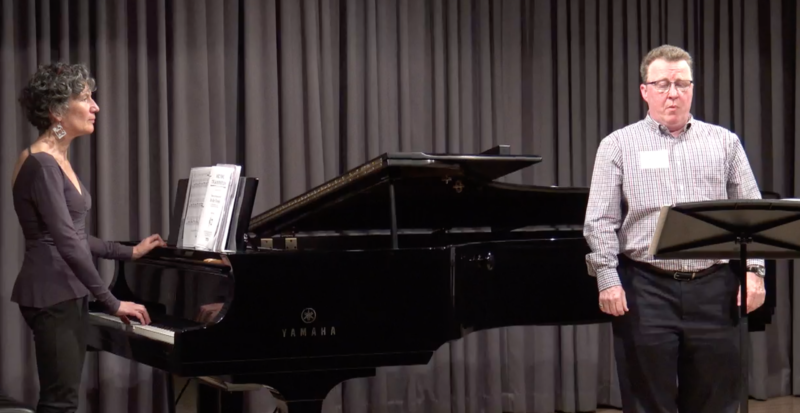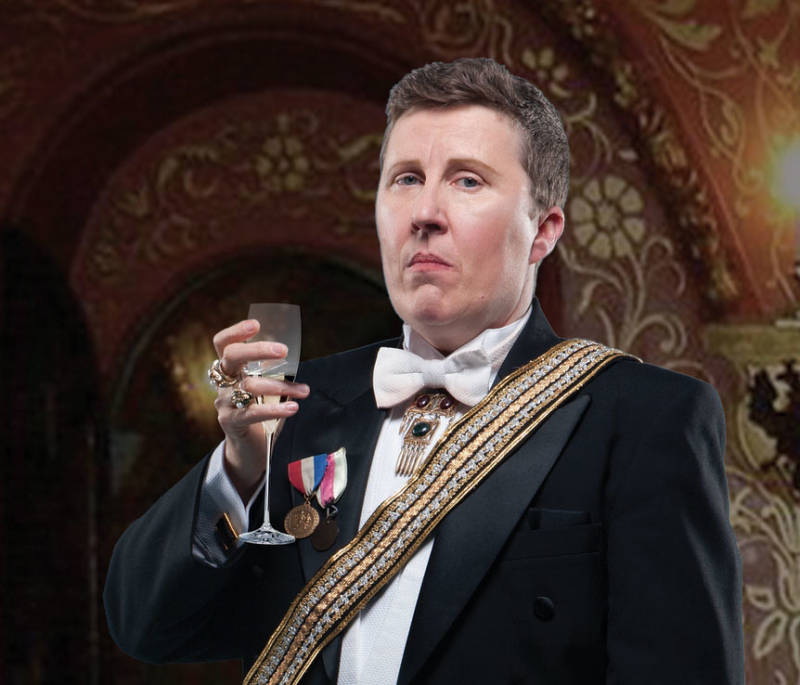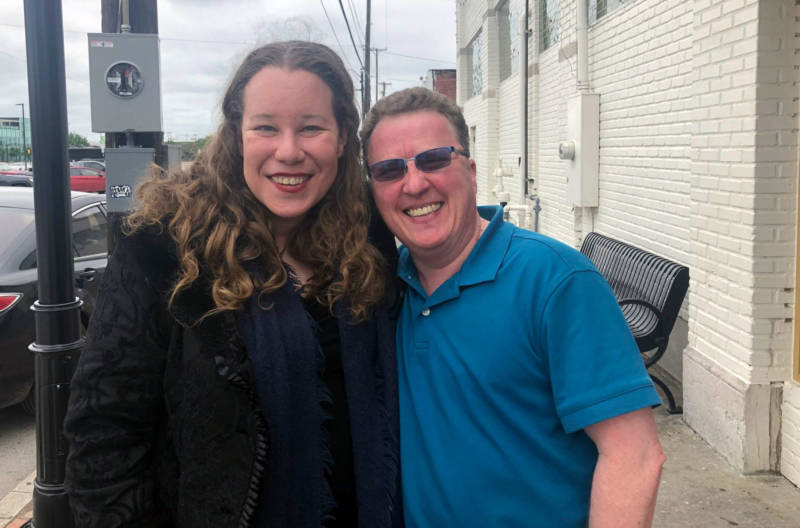Earlier this year, Elliot Franks appeared as a special guest at a transgender singing symposium in San Francisco. About 100 singers, voice coaches and academic researchers met for a day to share their experiences and advice.
Franks did something that day that took a lot of courage. He stood in front of all those voice experts while samples of his singing — recorded at various stages of his gender reassignment process — played over the speakers. His voice had changed over a period of two years or so, from ringing high and clear as a bell, to sounding low and croaky.
“You feel sort of bad knowing that you did that to your voice, when your voice has been so good to you,” Franks said.
In the 1990s and early 2000s, Franks was one of the San Francisco Bay Area’s go-to classical singers, making regular appearances with acclaimed ensembles, like the Philharmonia Baroque Orchestra & Chorale and the San Francisco Opera Chorus.
“Elliot’s voice was magnificent,” said Philharmonia Chorale director Bruce Lamott, who worked with Franks for about a decade. “He had a very agile voice with an extraordinary range.”
Back then, Franks used his female birth name and sang traditional soprano and mezzo-soprano parts. But offstage, he always dressed in men’s attire and preferred to be addressed with masculine pronouns. This was in keeping with his lifelong belief that gender covers a wide spectrum.
“To be forced to conform to one of two standard gender norms is to deny a person’s individuality, freedom of expression, personal identity and integrity,” Franks said.

The 56-year-old Richmond resident said he has felt this way since he was a kid growing up near Birmingham, England, in the 1970s.
As a teen whom others saw as a girl but who clearly felt differently about his own identity, Franks said he found the gender-neutral church choir dress code, with its baggy, tentlike robes, oddly liberating.
“That was my refuge really,” Franks said. “To be in a situation where I could be myself, and at that point, sort of relatively genderless.”
Franks watched the boys at school with envy, but couldn’t quite figure out why.


